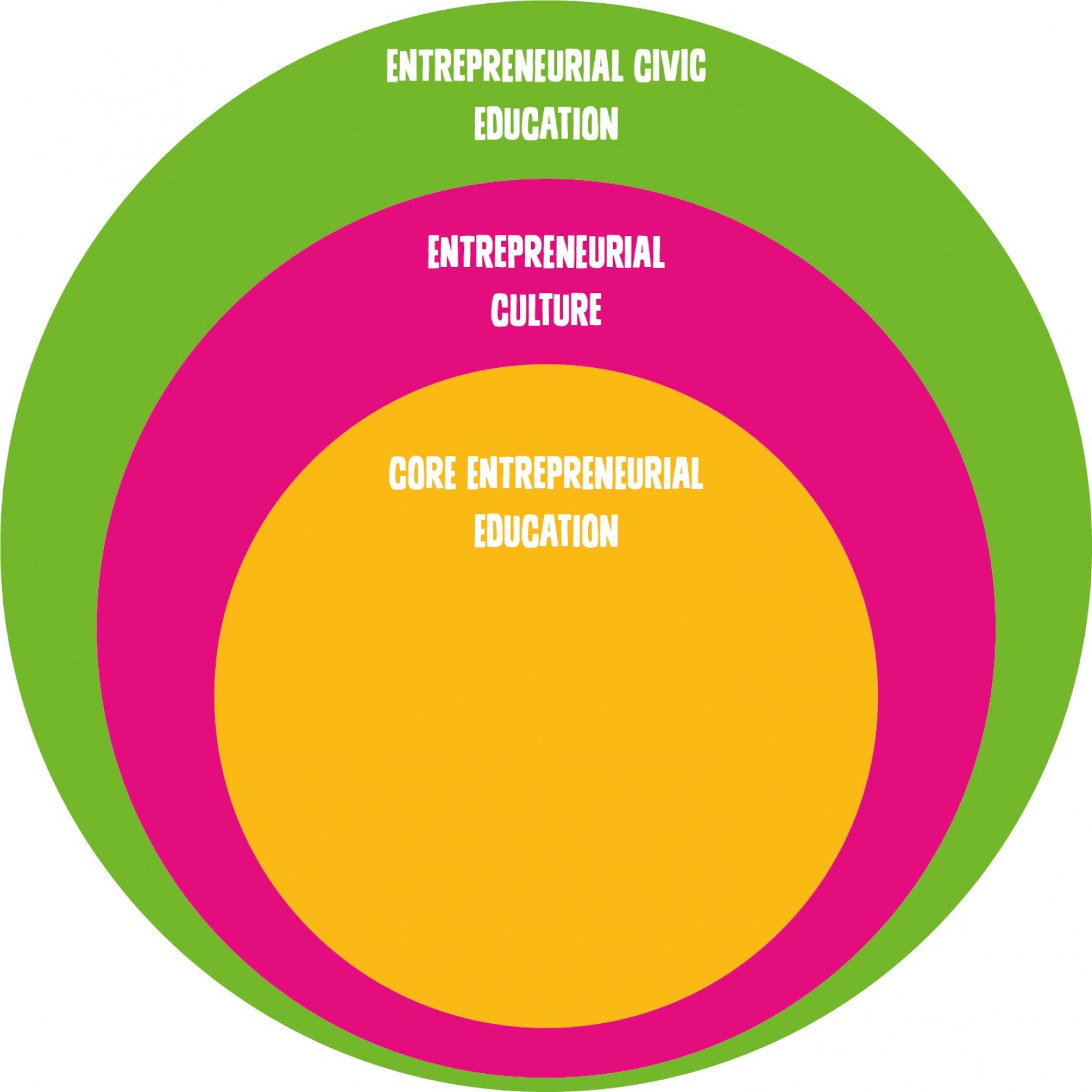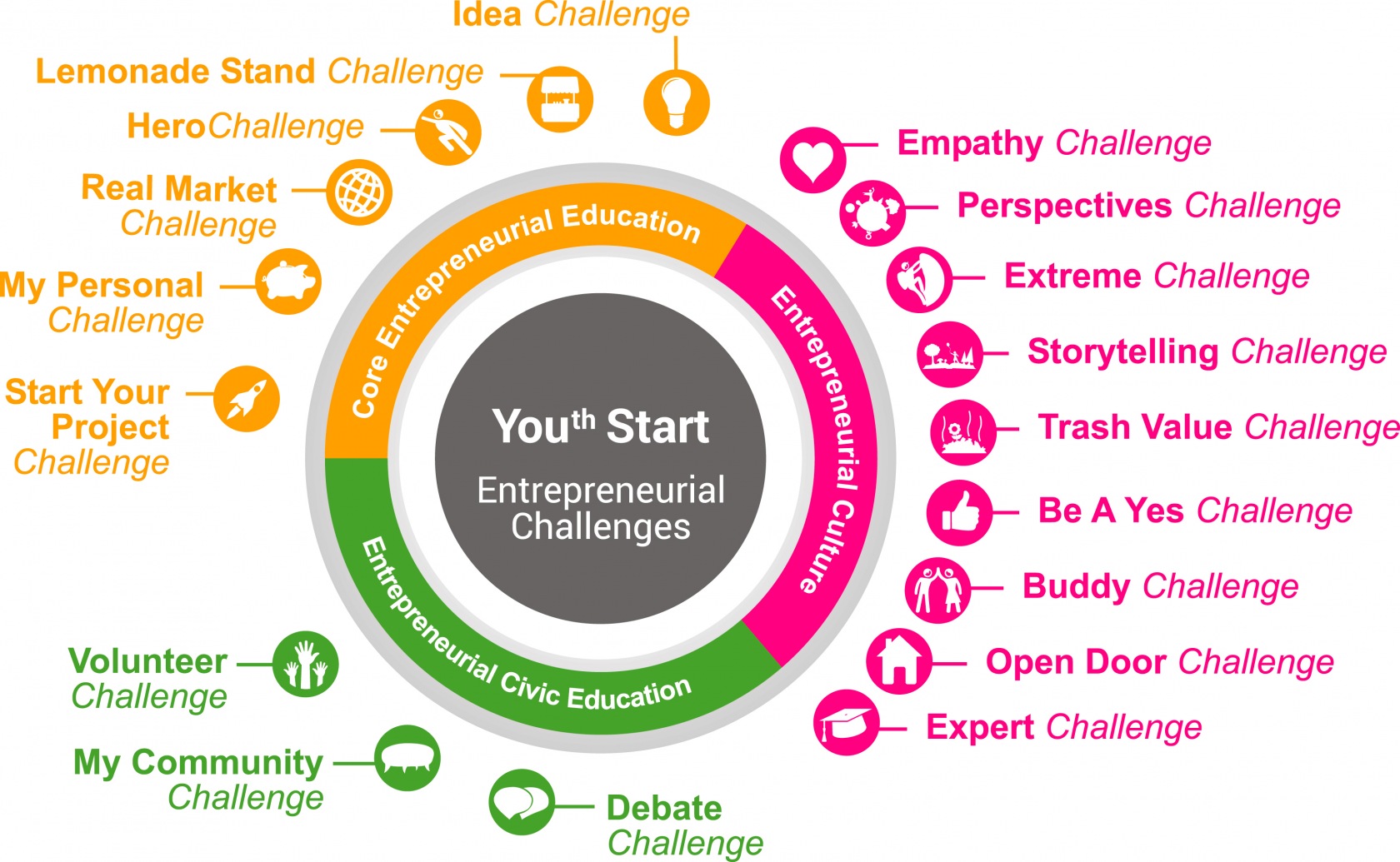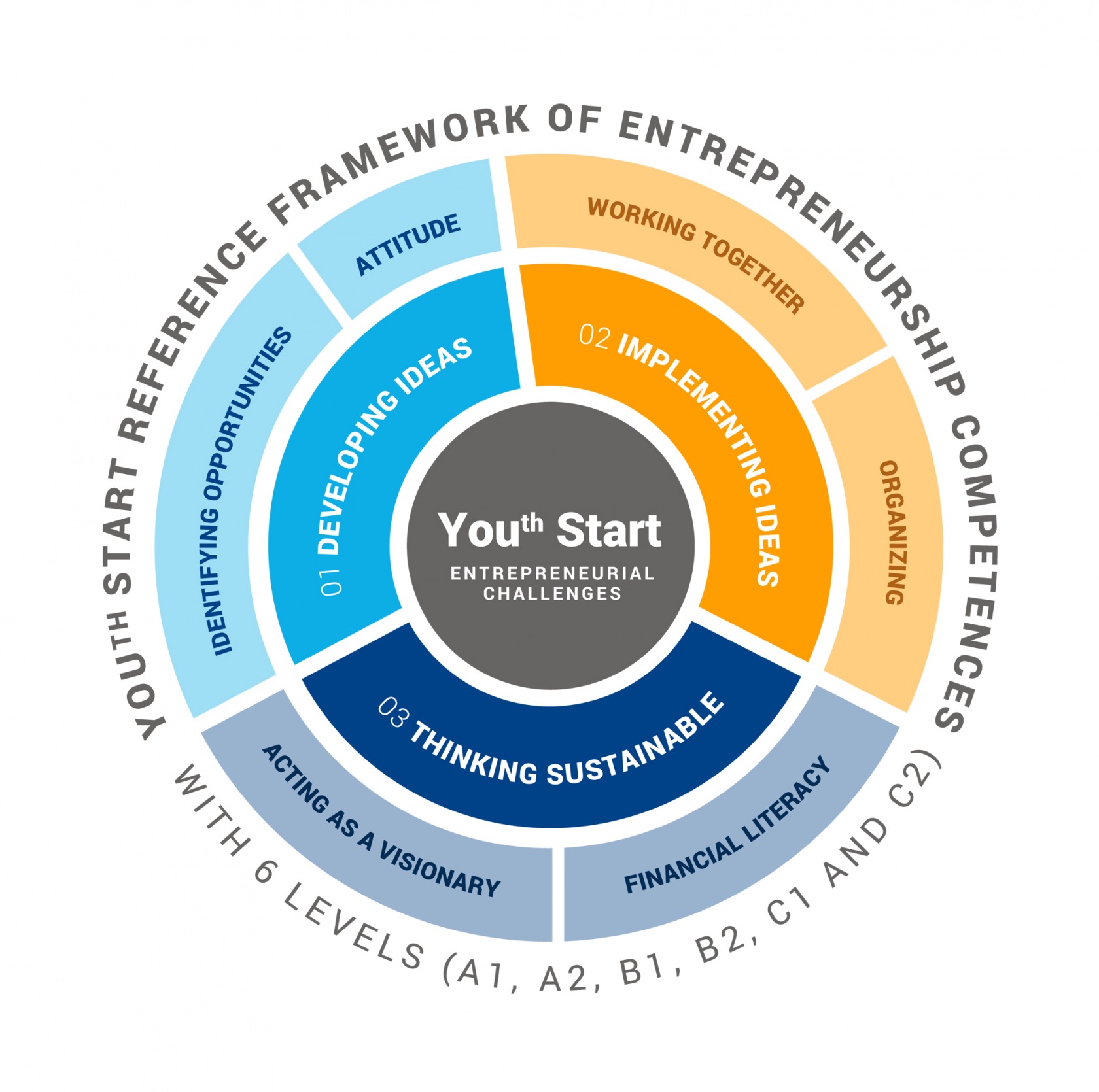Why entrepreneurship?
Independent thinking and responsible actions are the foundations of a viable society. These competences are first acquired in our childhood and youth and can be influenced by training and education. It is the creative people, the entrepreneurs, who keep the economy and our society going. The aim of entrepreneurship education is encouraging individuals to participate actively in our society.
Anybody can become an entrepreneur
Entrepreneurs are needed in all walks of life: in economics, politics, sciences and the private sector. They launch projects and confront challenges in business matters as well as non-profit settings. Big companies need creative employees with an entrepreneurial spirit in order to remain innovative. Entrepreneurs found companies, offer services and thereby help to shape our society on a local, national and sometimes even global level.
Indicating opportunities
Entrepreneurship education can offer new opportunities for underprivileged groups of society. Entrepreneurship principles canteach young people how they can participate in our society and shape the future – opening up new and real prospects for their own lives.
TRIO Model for Entrepreneurship Education
The Trio Model shows how we define entrepreneurship. Itencompasses three areas:
“Core Entrepreneurial Education” comprises basic qualifications for entrepreneurial thinking and acting, more precisely the competence to develop and implement ideas.
“Entrepreneurial Culture” refers to the promotion of personal competences in a social context. We speak of a culture of open-mindedness, empathy, teamwork and creativity as well as risk-taking and awareness of risks.
“Entrepreneurial Civic Education” aims at enhancing social competences and empowering students in their role as citizens. After all, democratic thinking and self-reflection help young people express their opinions and assume responsibility for themselves, others and the environment.
Personal growth through challenges
The Youth Start Entrepreneurial Challenges focus on fostering certain competences in the areas of cognitive and personal development, economic education and ethical and social contexts. The results of the scientific assessement of the programme verify the increase in competences.
18 challenge families from the 3 TRIO areas cover a broad range of themes, activities and situations of entrepreneurship education, with one common goal: encouraging young people to be open to new ideas and to implement these ideas creatively.
We use a variety of tasks to work on issues such as initiative, motivation and innovation, confidence and social participation. Our download materials target children on the primary level and students on the secondary levels I and II, with age-appropriate challenges for each of these groups.
|
Download Overview "Youth Start Entrepreneurial Challenges" |
Competence-oriented learning
There are a great variety of different competences. To provide a structured overview we have developed the Youth Start framework of references for entrepreneurship competences with three main categories: “Developing Ideas” , “Implementing Ideas” and “Thinking Sustainably”. In addition to that we have grouped the competences according to teaching levels from A1 to C2. Competence descriptions for instance include “I can develop creative ideas”, “I can evaluate business risks using case studies” and “I can see ethical problems and solve them”. This multi-dimensional diversification makes it possible to set very precise goals for the desired learning results.
The Youth Start reference framework has been used as a point of reference in the development of the EntreComp framework by the European Commission, making the Youth Start Entrepreneurial Challenges compatible with EntreComp.
|
Download Youth Start framework of references for entrepreneurship competences |



